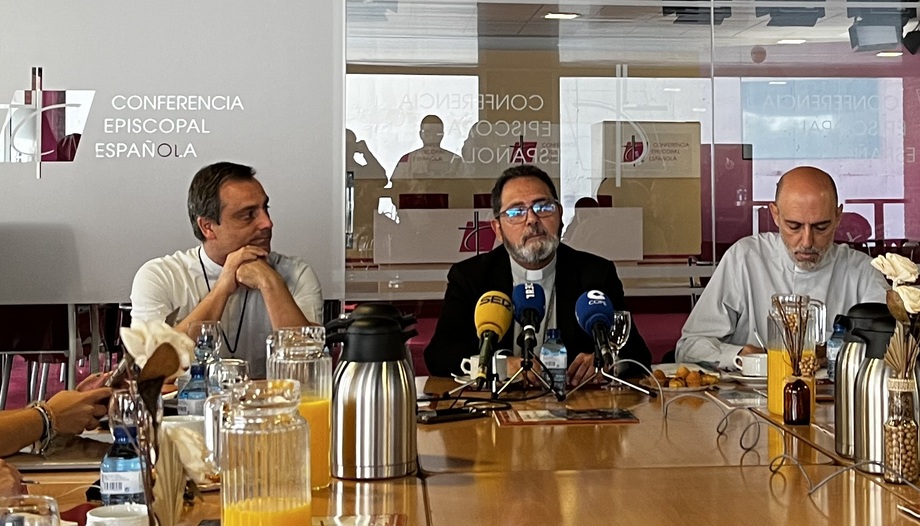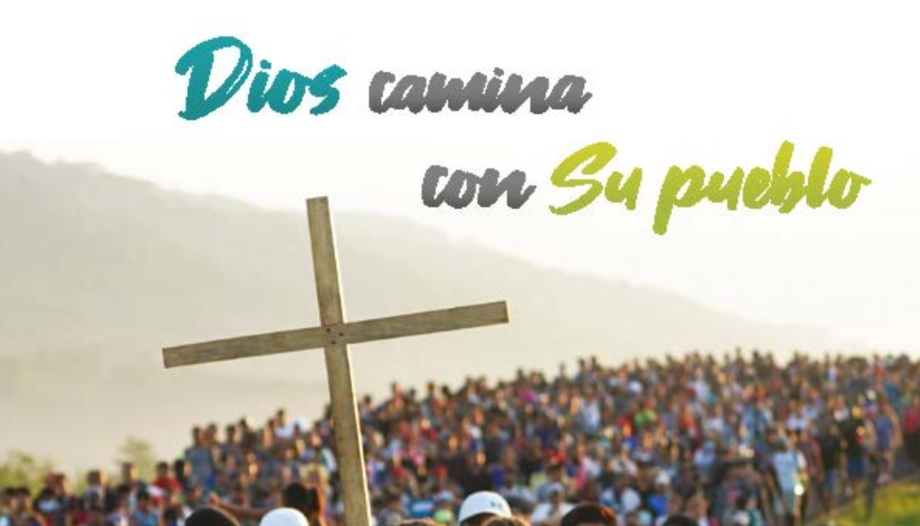On September 29, the Church celebrates the World Day of Migrants and Refugees with the theme: "God walks with his people".
On this occasion, the Spanish Episcopal Conference has presented the materials that the Church in Spain has prepared for this day.
Bishop Vicente Martín, member of the Episcopal Commission for Social Pastoral and Human Promotion, was the first to present the event, recalling that "the issue of migration affects us all and we have to manage it together: State, Church and society".
Bishop Vicente Martin wanted to point out the pastoral reflection approved in March by the Spanish bishops, which "is the framework in which the Church works this pastoral care of migrants". In this exhortation of the Spanish bishops there is "a proposal for a cross-cutting pastoral work with migrants".
Bishop Martin pointed out several challenges for the Church in the face of this reality: "inwardly, to be welcoming in order to live Catholicism, to widen the tent. Outwardly, to go out to meet the discarded people". The auxiliary bishop of Madrid recalled that there is the right to migrate but also the right not to migrate and stressed that those who arrive "must feel that they are part of the community to which they belong, not second class".
Once again, the Church has called for a national pact on migration as a framework for action that combines human dignity and security.
"Welcoming, promoting and integrating is our way of being at the side of migrants," said Bishop Martin.
For his part, the director of the Department of Migration, Xabier Gómez, began his speech by pointing out that "the Church has been reminding Christians of the importance of the phenomenon of migration for more than a hundred years," referring to the 110th day.
Gomez wanted to "share good news to raise our gaze and place human dignity and the common good at the center. The chosen motto reminds us that God walks with his people, in his people, in people. People on the move are Christ himself on the way," he said. Therefore "he is not with those who reject them. What we have to do is to fight against poverty, not against the poor.
In this sense, Gómez has highlighted the need to "de-ideologize what refers to migrations. Because what all this does is to defocus the issue. We are talking about people, about lives that are lost, about human dignity and the common good".
Gómez has put on the table some of the main data of the work of the Spanish Church with migrants: there are more than 120 centers serving migrants and refugees and more than 390,000 people have benefited in 2022".
Materials
Various materials have been prepared for this year's campaign. The reference document is the exhortation "Welcoming and Missionary Communities". Along with this, they offer 4 podcasts, "Crossing borders".
Gómez presented, in broad outline, the Atlantic Hospitality project, an ecclesial network in which 26 dioceses from 10-11 countries participate and which, in the next few days, will present the Atlantic Hospitality Guide that includes safe spaces along the Atlantic route as well as "podcasts to offer migrants, in their own language, information to help them manage their first arrival at the border. We will also work to connect with sponsors who can set up work projects in the populations of origin".
Finally, the apostolic vicar of Western Sahara, Mario Leon, who has been in the Sahara for 20 years, explained that "our churches are all migrants. People come for a while, the reality is hard". "The phenomenon of migration has hit us more since 2015. Until then it was concentrated in Rabat or Casablanca and they came to Sahara to pass through. We have had to learn; we with our smallness, we are two parishes, the first thing is to welcome and celebrate the faith. The migrants share their faith with us and make us live the faith in a very lively way". León referred to one of his parishes whose community "is completely migrant. What we want is that they feel at ease, we see this phenomenon as an opportunity: they have given us community life... they have given us faith". León explained the work that, in coordination with various entities and communities, is being carried out from Sahara to attend to these thousands of displaced people.
One of the questions that was in the air from the very first moment of the presentation of this Day was the possibility of Pope Francis' visit to Canary Islands. At this point, the auxiliary bishop of Madrid stressed that, for the Church in the Canary Islands, such a visit "would be a great joy and an endorsement for this work as well as a breath of hope for the people received".









